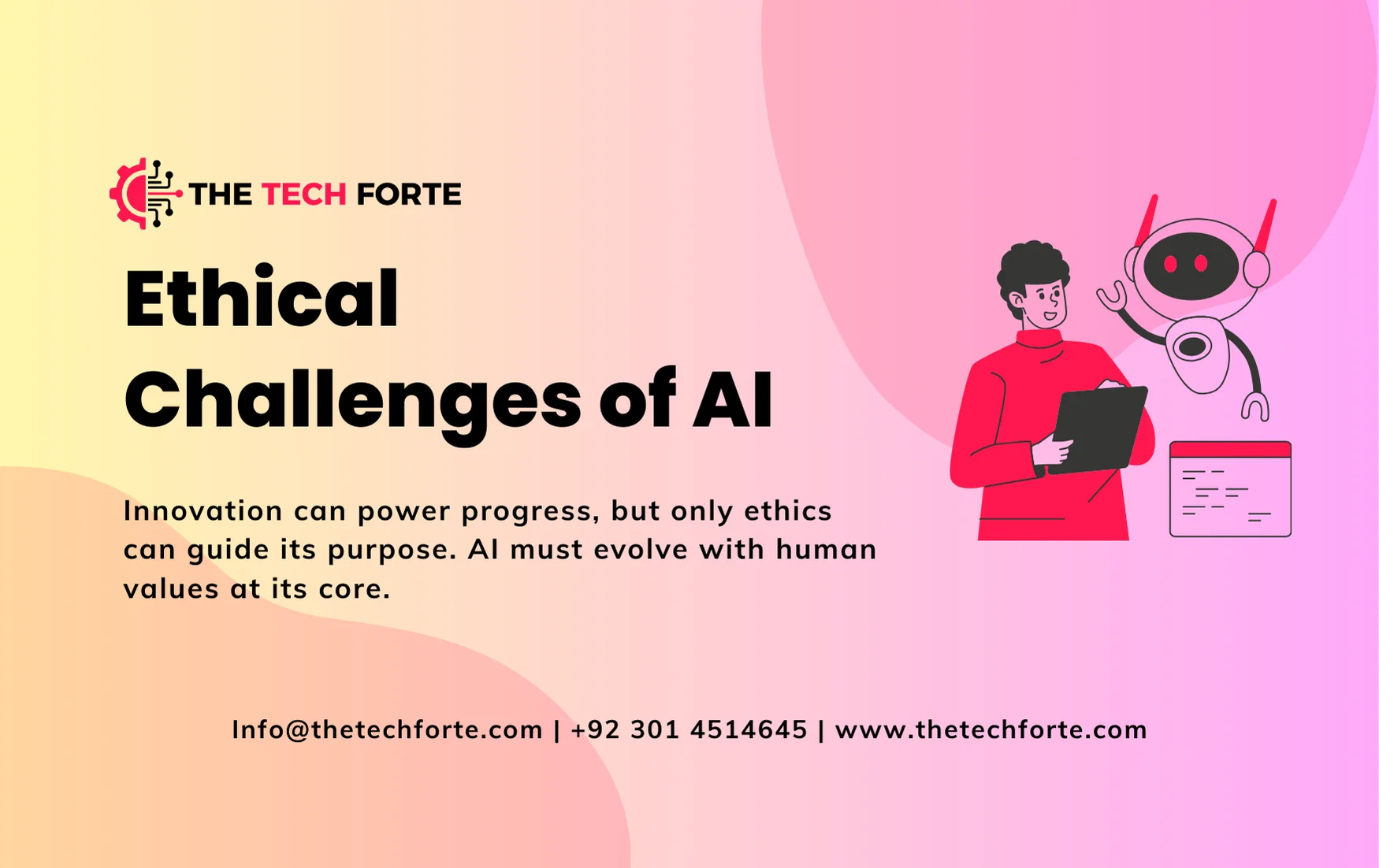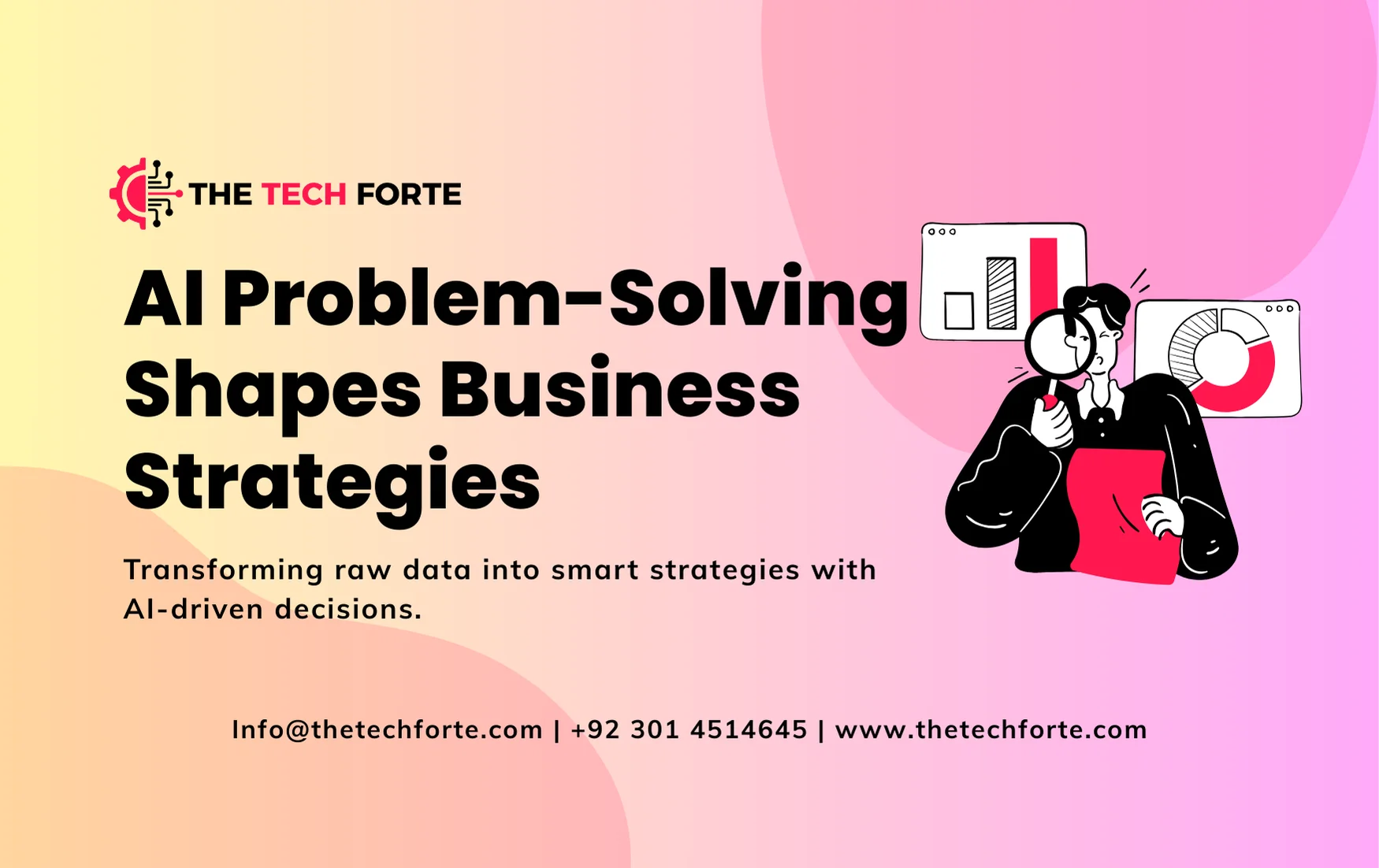
Ethical Challenges of AI: Balancing Innovation with Human Values
Ethical Challenges of AI: When an AI recruitment tool favored male candidates over equally qualified women at a major tech company, the news itself spread further across the world quickly. This wasn’t a bug; the system was trained on biased data that caused this result. These incidents further show that AI ethical problems are not just theoretical concepts but affect real lives and careers themselves. Such cases damage trust in technology and create serious consequences for people.
Further, as per the growing use of artificial intelligence in healthcare, finance, education, and creative fields, the need for ethical responsibility is becoming very strong. Regarding AI’s deep role in these areas, people call for more responsible use than ever before. Surely, artificial intelligence creates many moral problems that we must carefully study and understand. Moreover, these ethical challenges of AI need proper mapping to help researchers and policymakers make better decisions about AI development.
Mapping the Ethical Challenges of AI:
Ethical challenges of AI are multifaceted and vary across industries. Core principles emphasize bias, fairness, transparency, accountability, and privacy, all of which are interconnected for effective functioning. For example, AI errors in healthcare can endanger patients, while biased systems in banking unfairly deny loans. Recognizing these interconnected issues demonstrates that ethical challenges of AI is not optional but essential for sustainable innovation. These concerns underscore the need for responsible AI development, with foundational ethical principles such as fairness, transparency, and accountability guiding AI development practices to ensure systems function correctly and do not harm individuals.
Foundational Ethical Principles in AI:
Basically, before going further, we need to understand the same ethical principles of AI that experts and policymakers always talk about. Systems should actually treat everyone equally and definitely not make existing unfairness worse. They must avoid creating more discrimination in society. Data collection and sharing must surely happen with proper informed consent from users.
Moreover, privacy protection requires clear approval before any personal information is used. We are seeing that users should only understand why AI systems are making their decisions. This transparency is needed so people can know how these systems are working. Humans must take responsibility for important decisions and outcomes. People definitely need to watch over and answer for critical results. Further, these basic rules work as a foundation for building AI systems that people can trust and solve the ethical challenges of AI. We are seeing that these principles help create responsible technology that only serves human needs properly.
Beyond the Basics: Overlooked Ethical Dimensions:
Most of the debates limit themselves to privacy and equality, but there are untapped territories that deserve equal attention:
- Green-ness of AI: Huge models require huge energy inputs to train, inviting carbon footprints.
- World & Cultural Diversity: Moral standards vary across the globe—what one can do in country A might not be tolerated in country B.
- AI and Human Identity: Deep fakes and emotion-monitoring AI blur between reality and show.
- Digital Divide: Not all have equal access to the benefits of AI, which further exacerbates socio-economic divides.
Covering these areas guarantees end-to-end treatment of AI ethics, as opposed to a checkbox exercise.
The Governance Puzzle: Who Holds AI Accountable
Who is responsible for AI? Where AI harms, the issue is: who is to blame—the creator, the company, or the machine? Governments are attempting to provide an answer. So far, for instance, the EU AI Act establishes regulation of high-risk AI systems, and Google and Microsoft offer ethical principles. But without international standards, accountability stays diluted. The shared approach to governance is the key element in the assurance of AI responsibility worldwide.
As per current observations, AI ethical challenges have multiple layers and differ across different industries. Also, as per the core principles, they focus on bias, fairness, transparency, accountability, and privacy. Regarding these aspects, all elements work together for proper functioning. We are seeing that AI mistakes in healthcare can only put patients’ lives in danger, and biased systems in banking unfairly deny loans to people. Understanding these connected problems surely shows us that ethical AI is not a choice; it is necessary for lasting innovation. Moreover, these concerns make it clear that we must build AI systems responsibly.
As per current AI development practices, foundational ethical principles regarding artificial intelligence focus on fairness, transparency, and accountability. These basic guidelines ensure AI systems work properly and do not harm people in society. Basically, before going further, we need to understand the same ethical principles of AI that experts and policymakers always talk about. Systems should actually treat everyone equally and definitely not make existing unfairness worse. They must avoid creating more discrimination in society. Data collection and sharing must surely happen with proper informed consent from users.
Case Studies & Lessons Learned:
Examples from the real world help to clarify the ethical challenges of AI:
- Credit Scoring: Due to skewed historical data, banking algorithms are used to unfairly penalize minority groups.
- AI in healthcare: While some diagnostic tools showed promise, they had trouble being accurate across a range of patient groups.
- Defense Autonomous Systems: The risks of granting machines life-or-death authority are a topic of ongoing discussion. These instances highlight the dangers of disregarding morality as well as the potential for ethical innovation.
Frameworks for Ethical AI Development:
Development of Ethical AI Businesses are implementing structured frameworks like these to transition from principles to practice: Integrating ethical checks from the beginning of development is known as:
- Privacy-by-design: Making sure user data is safe at every step.
- Risk assessment before deployment is known as Artificial Intelligence Impact Assessments.
- Maintaining thorough records of AI decisions for accountability through audit trails and traceability.
- Technically, adversarial debiasing, federated learning, and explainability models are contributing to a more dependable AI environment.
Future Risk and Emerging Trends:
The future of artificial intelligence presents fresh ethical issues that we must foresee:
- Generative AI: Tools creating believable photographs, words, and voices raise issues of authenticity and disinformation.
- Military applications of AI raise critical discussions about moral responsibility in combat.
- Systems able to identify and affect human emotions create privacy and psychological problems.
- Quantum + Artificial Intelligence: As quantum computing grows, it could magnify the power and hazards of artificial intelligence systems.
- These new trends remind us that ethical awareness must grow alongside technical development.
Action plan for ethical uptake of artificial intelligence:
Several stakeholders must act to create trustworthy and ethical artificial intelligence:
- Designers should prioritize fairness, privacy, and explainability.
- Businesses should establish ethical review boards and conduct independent audits.
- Governments should establish robust yet adaptable laws.
- Society: Enhance ethical challenges of AI literacy to enable individuals to recognize their rights and potential risks.
- Bias testing, privacy protections, clear reporting, and human oversight, all essential for the sustainable adoption of artificial intelligence, are included in a straightforward checklist.
Conclusion:
Beyond technological problems, the ethical challenges of AI with artificial intelligence encompass justice, responsibility, sustainability, and human nature itself.
These difficulties, from biased recruitment methods to energy-hungry models, remind us that innovation without accountability is temporary. Accepting ethical guidelines, promoting worldwide cooperation, and educating society will help ensure artificial intelligence benefits mankind rather than the other way around. The decisions we make now shape the direction of artificial intelligence.






